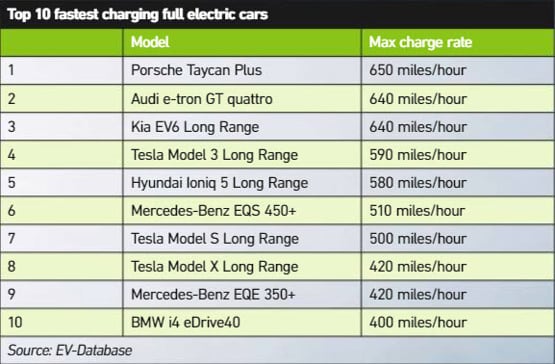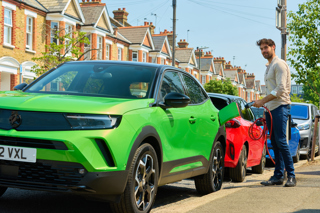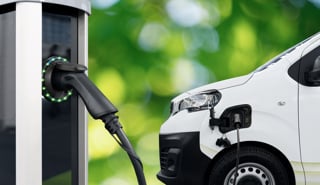
Fleet FAQ
Q:
How long does electric vehicle (EV) charging take?
A:
There are many factors which affect how long it takes to charge a battery electric vehicle (BEV). One of the major contributors is the speed of the charge point used.
BP Pulse data shows that, in 10 minutes, a 3kW slow charger can add up to two miles of range, a 7kW fast charger up to five miles, a 50kW rapid charger up to 33 miles and a 150kW ultra-fast forecourt charger up to 100.
Even faster chargers are also being developed: 350kW chargers will deliver up to 217 miles in 10 minutes.
However, although it is safe to plug a BEV into any compatible charge point, the speed the energy can be transferred is limited by the vehicle’s own on-board charger.
For example, if you plugged a car with a 50kW on-board charger into a 150kW charge point, it would still only charge at 50kW.
The length of time to charge a battery to full will also depend on the capacity and state of charge of the battery: the larger the battery and the less charge it has, the longer it will take.
The state-of-charge also makes a difference when using a rapid charger.
A battery will charge much faster when it is below 80% capacity than it will above that figure: this is because a vehicle’s battery controller will slow the charge down after this point to protect the health of the battery, as well as for safety reasons.
A colder ambient temperature can also make it take slightly longer to charge, particularly when using a rapid charger.
Colder temperatures also mean BEVs are less efficient, so fewer miles are added per minute charging.
Top 10 fastest charging full electric cars

*Data accurate as of April 2022
> Interested in comparing electric vehicle data? Check out our EV tool.
> Interested in ensuring the efficient use of EVs. Check out our dedicated editorial sections: Insight & policy | EV news | Charging & infrastructure | Costs & incentives | Benefit-in-kind | EV case studies | EV road tests
> EVs by price: lowest to highest

















